Over the past few years, technology has improved our lives in so many ways. Now, some people, called trans-humanists, are taking the next logical step - they are fusing their bodies with digital implants to increase their abilities and expand their senses - they are becoming, in effect, real life cyborgs. How is life going to change for us all if some people have supernatural powers?
Related Movies

For You (2023)
Flowers, Animals, Grass, Sky, Loved ones, Like, Follow, Comment. View the forgotten and ruined memories that have been tainted by earworms, bad comedy and the far-right pipeline. Gaze upon the endless landscape, or gaze upon the endless thirst traps.

Algorithmes - vers un monde manipulé (2023)
By observing the technological developments of artificial intelligence in several countries, this film sheds light on the advantages and limits of algorithms and their repercussions on the lives of citizens. Whether at the level of the State, the police, universities, or companies, artificial intelligences should be used as a tool, but very often become a substitute for the work of the individual. There are many abuses: manipulations, addictions, or centralization of power. What can governments and States do to best regulate these technological advances?

Television (1939)
Promotes television sets and the broadcast of New York's first regularly scheduled programs by providing a clinical look at the inner workings of television, including the manufacture of the tubes, lab experiments, and an actual telecast. Shows RCA's production studios in Rockefeller Center, television demonstrations at the 1939–40 New York World's Fair, RCA's Empire State Building transmitter, and remote mobile broadcast units. One of a variety of "Reelisms" shorts produced by Frederic Ullman Jr. and Frank Donovan for RKO in the late 1930s.
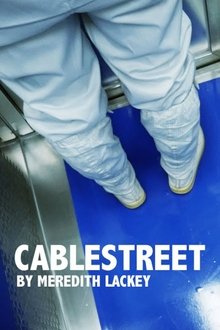
Cablestreet (2019)
A cable system designed by controversial Chinese company Huawei Technologies enables communication between an expert and a machine. Time succumbs to space in a "New Cold War" played out in technological materials.
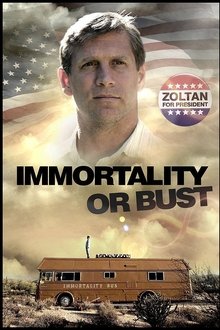
Immortality or Bust (2020)
Winner of the BREAKOUT AWARD at the 2019 Raw Science Film Festival, Immortality or Bust follows Zoltan Istvan's Transhumanist Party presidential campaign to its final, and revealing conclusion.
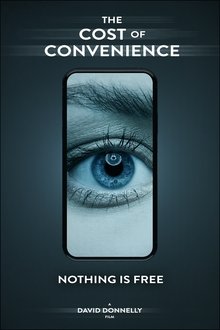
The Cost Of Convenience (2024)
The Cost Of Convenience examines how internet platforms are impacting our mental health, restructuring our communities, threatening our democracy, and violating our human rights.

Koyaanisqatsi (1983)
Takes us to locations all around the US and shows us the heavy toll that modern technology is having on humans and the earth. The visual tone poem contains neither dialogue nor a vocalized narration: its tone is set by the juxtaposition of images and the exceptional music by Philip Glass.
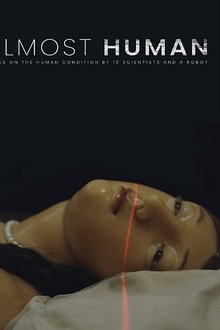
Almost Human (2019)
The filmmaker Jeppe Rønde has invited 10 of the world's foremost researchers - and a robot! - to rethink our relationship with technology and its dilemmas from the outside. Philosophers, anthropologists, archaeologists and programmers show us through their thought experiments that our relationship with technology is just as much about our relationship with ourselves.
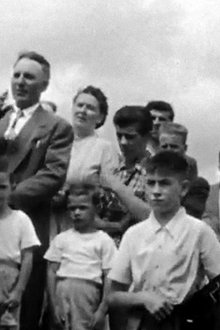
The Dikes (1955)
A look at the destruction that follows the breaking of long-neglected dikes and the measures being taken to prevent future problems.

The University (2016)
On a NASA research base in Silicon Valley, there's an organization that's changing the world ... Singularity University (SU). Created by renowned futurist Ray Kurzweil and entrepreneur Peter Diamandis, with support from NASA, Google, and others, the university brings in some of the smartest students from around the world, and gives them a crash course in the most powerful exponential technologies on the planet. The students are then given a challenge: create companies that will impact a billion people within ten years. The film follows the students and their companies over five years, as they use the support of scientists, astronauts and billionaires in their attempt to make a dent in the universe.

Forward a Century (1951)
Commissioned by the Festival of Britain to show the similarities and contrasts between 1851 and 1951, by means of the Great Exhibition and the Festival.

Best of Luck with the Wall (2016)
A video directed by Josh Begley shows the preposterous effort that would be required to build a border wall.

More Than Robots (2022)
More Than Robots follows four international teams of teenagers as they prepare for the 2020 FIRST Robotics Competition. Get to know competitors from Los Angeles, Mexico City and Chiba, Japan as they work towards the ultimate goal of taking their unique designs all the way to the highly competitive global championships. Along the way they must overcome challenges such as having limited resources or putting everything on hold because of the COVID pandemic. The kids persevere and learn that there is a lot more to the competition than just robots.

The Sun Queen (2023)
Chemical engineer and inventor Maria Telkes worked for nearly 50 years to harness the power of the sun, designing and building the world's first successful solar-heated modern residence and identifying a new chemical that could store solar heat like a battery. Telkes was undercut and thwarted by her (male) boss and colleagues at MIT, but she persevered. Upon her death in 1995 Telkes held more than 20 patents, and now she is recognized as a visionary pioneer in the field of sustainable energy whose work continues to shape how we power our lives today.

Revolution OS (2001)
REVOLUTION OS tells the inside story of the hackers who rebelled against the proprietary software model and Microsoft to create GNU/Linux and the Open Source movement.

The Singularity (2012)
Within the coming decades we will be able to create AIs with greater than human intelligence, bio-engineer our species and re-design matter through nanotechnology. How will these technologies change what it means to be human? Director Doug Wolens speaks with leading futurists, computer scientists, artificial intelligence experts, and philosophers who turn over the question like a Rubik’s Cube. Ultimately, if we become more machine-like, and machines more like us, will we sacrifice our humanity to gain something greater? Or will we engineer our own demise? THE SINGULARITY is a comprehensive and insightful documentary film that examines technology’s accelerating rate, and deftly addresses the resulting moral questions.
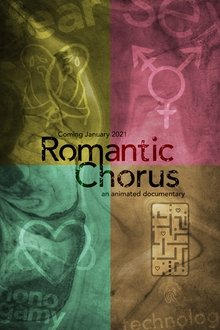
Romantic Chorus (2021)
A feature animated-documentary that focuses on sex and romantic connections featuring 21 diverse interviews with people from a wide range of genders, cultural backgrounds, abilities, and sexual orientations as they discuss Sex, Monogamy, Fear and Technology. The film is also collaboration of our production staff and 17 animators from 10 countries.

A86 : Le Défi d'un tunnel à double étage (2023)
The Duplex A86 is a 10 kilometer underground highway buried more than 90 meters deep. This concrete tube, measuring the equivalent of more than 30 lying Eiffel towers, is the longest tunnel in France. The result of a succession of technical prowess born from the imagination of visionary engineers, the Duplex A86 allows you to cross all of western Paris in a few minutes.
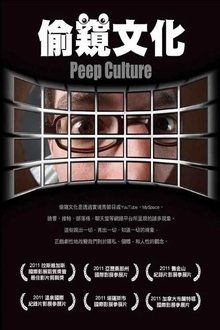
Peep Culture (2011)
Pop culture has become “Peep Culture”, where we’ve traded privacy for notoriety and, in the process, reinvented mass culture. But what does it all mean and how is it changing us? Hal Niedzviecki, a 38 year old husband and father, plunges into “deep peep”, with webcams exposing his every move and millions of potential internet viewers invited to watch and engage in the spectacle.
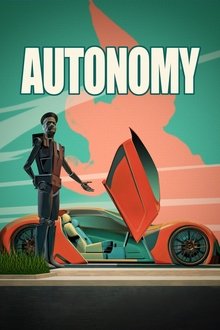
Autonomy (2019)
A cinematic exploration of the world of automated vehicles — from their technical history to the personal narratives of those affected by them to the many unanswered questions about how this technology will affect modern society. This documentary features interviews with industry pioneers and scenes with cutting-edge “AVs” in action around the world.